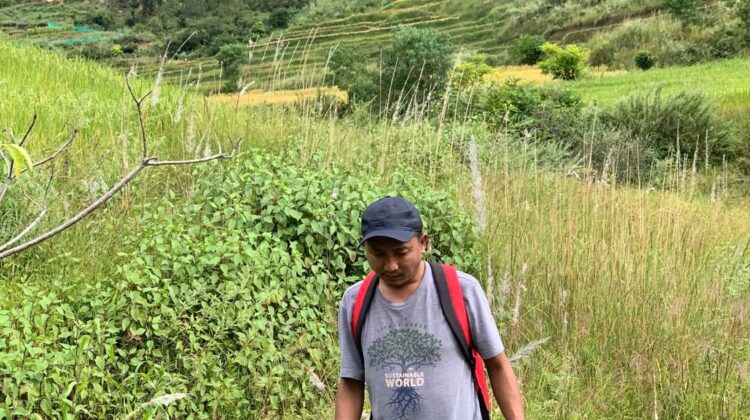Democracy beyond election: Raising the voices of vulnerable Bhutanese
There is an urgent need to improve the public social protection system in Bhutan to more effectively reduce inequalities and minimize the vulnerabilities of Bhutan’s most marginalized citizens. This is particularly the case in the face of disruptions like the COVID-19 pandemic. Excluding health care, Bhutan spends no more than 1.0% of its GDP on social protection.[1] Currently, only employees of the formal economy participate in provident fund and pension schemes that provide some safety from disruptions in life. Only 9.1% of the working-age population contributes to the country’s pension schemes and only 3.2% of the population beyond retirement age are covered by a pension scheme.[2] Overall, a mere 17% of the total labour force are covered under some pension and provident fund programme.[3]
In addition to these limited programs, Kidu, a traditional welfare system that is a prerogative of the Monarchy, provides support from the granting of land ownership, to scholarships, to monthly rations for the destitute. Nonetheless, the pandemic plunged Bhutan’s economy into a recession. The country’s unemployment rate increased significantly with youth unemployment in particular doubling from 11.9% to an alarming 22.6%. Those in the private and the informal sector are affected disproportionately given that the few social protection programs that do exist are in the formal economy and the civil service. In this context, as of April 2021, a total of Nu 11.06 billion (C$185 million) was spent on Kidu for over 191,000 beneficiaries during the pandemic.[4] A significant proportion of the economic burden of providing social protection has therefore been borne by the Monarchy’s Kidu program – a clear indication of the necessity of improving the public social protection system to more sustainably reduce inequalities and minimize the vulnerabilities of Bhutan’s citizens working outside of the formal economy.
Women are disproportionately affected by the lack of an effective public social protection system. Women and girls inhabit a lower spectrum of the labour force, particularly in the agriculture sector and service industry. High school drop-outs and young illiterate women often seek employment in exploitative local entertainment bars which are, as of January 2022, no longer allowed to operate, leaving the young girls unemployed. Overall, young women’s’ unemployment rate is higher than young males (61.3 % vs. 38.7%)[5] and difficult economic circumstances make them vulnerable to organized crime such as human trafficking.
People with disabilities (PWD) are also vulnerable. Only 9.8% of PWD independently carry out their daily activities while 67.8% are partially dependent and 22.5% fully dependent on others.[6] Physical challenges create barriers and prevent PWD from participating in community activities. Similarly, unemployment among youth inhibits meaningful participation in community life. The lack of meaningful social protection programs for unemployed youth has led to increased depression and a growing problem with youth crime.[7]
All of this points to the critical need to re-think the public social protection system to better support such vulnerable populations. The vast majority of the Bhutanese population is excluded from the current system and remains vulnerable to future shocks even once the pandemic is over. Unemployment, lack of security, vulnerability and social exclusion are the result. Yet, the National Social Protection Policy drafted as recently as 2013 is not only limited in its coverage, but is fragmented and lacks coherence given the cross-sectoral nature of the issue and its focus on workers in the formal economy alone.[8]
Such policies are symptomatic of a sectoral and siloed approach to policy formulation in Bhutan that excludes diverse voices. In Bhutan’s fledgling democracy, citizens lack knowledge and skills in understanding policy and how they can shape and influence it. At the same time, policy formulation is regarded as the prerogative of government agencies where consultations tend to be limited, cursory and opinion-based. The government’s largely top-down approach means draft policies are merely uploaded on websites for public comments. Active solicitation of citizens’ views are few and far between, and in a society with high self-censorship, critical and dissenting views are missed from policy discourse.
The Bhutan Canada Foundation has partnered with the Bhutan Centre for Media and Democracy (BCMD) to address this challenge. The Democracy Beyond Elections Project, funded by the Fund for Innovation and Transformation, will implement an innovative approach to policy deliberation that better incorporates the voices of vulnerable populations into the policy process. Based on the principles of Design Thinking, the project will bring together policymakers, vulnerable women, PWD and vulnerable youth in a collaborative process of co-learning and co-creation that identifies key social protection policy issues, ideates and co-creates policy solutions to these issues, and engages in policy advocacy around the solutions. The result will be social protection policy recommendations submitted to the Bhutanese government that better respond to the lived experiences of marginalized women, vulnerable youth and PWD.
The project began in May 2022 and will be implemented over a 12 month period. For more information about the project, please contact tenzing@bhutancanada.org
[1] Alvarenga, K.S & Soares, F.V, (2020), Child-sensitive changes transfers in Bhutan- Policy brief. International Policy Centre for Inclusive Growth.
[2] Alvarenga K.S & Soares, F.V, (2020), COVID-19 and social protection in South Asia: Bhutan
[3] National Pension and Provident fund Policy of Bhutan 2018
[4] https://kuenselonline.com/royal-kidu-benefited-52644-individuals-and-139096-loan-account-holders/
[5] National Statistics Bureau (2020), Labour Force Survey
[6] Disabled Persons’ Association of Bhutan, 2015
[7] Gross National Happiness Commission Secretariat, 2016; National Statistics Bureau, 2015, Crime and Mental Health Issues among Young Bhutanese People.
[8] Ministry of Labour & Human Resources, (2013), Draft National Social Protection Policy for Workers in Bhutan






